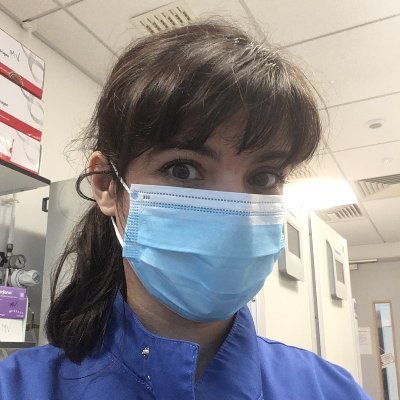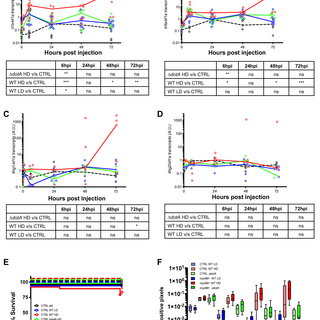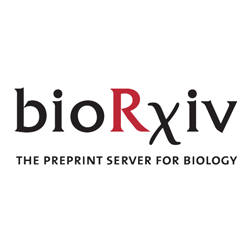
Daniel Schator
@schator
Followers
72
Following
612
Media
1
Statuses
34
Microbiologist 🧫🔬 Interested in infection biology, bacterial secretion systems and host-pathogen interaction 🇦🇹|🏳️🌈 he/him
San Francisco, CA
Joined February 2020
New paper finally out on @NatureComms ! Led by first author Mariatou Dramé @drm_maria with the collab of Francisco Garcia, @cbuch2 and @jytinevez at @institutpasteur . Early mitochondrial signals in single human macrophages predict later Legionella replication. Link + details👇🧵
3
5
11
Paper alert 🚨🚨 In this study we explore the effects of cross-membrane cooperation of extra- and intracellular bacteria during infection in vitro and in vivo. Key conclusion: We should be more like bacteria, because cooperation is king (or queen)! https://t.co/so5dMMvpTa
nature.com
Nature Communications - The pathogenic bacterium Pseudomonas aeruginosa can be found in vacuoles and cytoplasm within infected cells. Here, Schator et al. show that extracellular bacteria use a...
1
2
3
We are proud to announce Prof. Carmen Buchrieser (@cbuch2, @institutpasteur) as FEMS-Lwoff Awardee 2025, for her groundbreaking work on microbial pathogenesis. She will deliver her Prize Lecture at FEMS MICRO 2025. #FEMS2025 Read the full press release: https://t.co/0IXIIy8Ktx
10
15
72
New article in press by @drm_maria with @schator and @cbuch2 , a method to visualize mitochondrial ETC complexes and super-complexes in #Legionella -infected cells. Congrats! https://t.co/PN3mOiSirX
1
9
19
The unique Legionella longbeachae capsule favors intracellular replication and immune evasion https://t.co/t6BiytfP2g
#biorxiv_micrbio
1
8
27
I am extremely happy about my recent publication and immensely grateful to @cbuch2 and the collaborators of this project on the respiratory tract microbiome and pneumonia 😍🥳@CellRepMed @institutpasteur #microbiome #respiratory #pneumonia #legionella
https://t.co/cyuYKX2wAd
cell.com
Pérez-Cobas et al. show that inter-kingdom respiratory tract microbiomes during pneumonia and hospitalization are characterized by ecological species replacement. High bacterial and fungal loads are...
3
40
93
Outstanding lab with amazing people! 🧐👏
📢 We're hiring! 📢 If you are a postdoc and want to study the role of HGT in (clinical) bacterial evolution in an @ERC_Research funded project, join us in the sunny Madrid! 👉 Position details here: https://t.co/JRbz1jm8EB 🧪 Lab website:
0
1
4
Hiring a #postdoc for a 2 year position at @institutpasteur in @cbuch2 lab ! The project investigates #metabolism of human #macrophages during infection with intracell #bacteria #Salmonella #Legionella, using cutting-edge #metabolomics including #MSI Starts Jan 2024 Please RT🙂
2
149
172
Really happy to see our work on establishing zebrafish as a model for Legionella infection out @PLOSPathogens 🧫 Thanks to @cbuch2 @schator @Valerio_Laghi and all other twitterless co-authors. https://t.co/oWXk1awIm4
journals.plos.org
Author summary L. pneumophila is an intracellular pathogen that has co-evolved with aquatic protozoa but can also infect humans to cause a severe pneumonia. L. pneumophila infections are increasingly...
11
7
45
My PhD work is finally out! 🥳 We described the first pair of Legionella „para-effectors“, two effectors with high levels of interdependence that modify the same histone residue. Big shoutout to @AM_Wehenkel, @cbuch2 and the other (twitterless) co-authors! https://t.co/0ATC4hU1gC
0
11
57
Had a great time presenting some pathogenesis research with my lab at #UCSF #BAMPS2023 #phdlife @schator
1
1
5
It’s finally out! My first first-author paper is out, where we describe a bacterial HDAC protein closely working together with another secreted effector to modify host chromatin during infection. Thanks to @cbuch2 and the other authors for their support! https://t.co/De5Nimhhqc
biorxiv.org
Legionella pneumophila replicates intracellularly by secreting effectors via a type IV secretion system. One of these effectors is a eukaryotic methyltransferase (RomA) that methylates K14 of histone...
1
5
27
If eukaryotes are the first thing that comes to your mind when hearing about #epigenetics, think again 🤓 Here’s a review by the Buchrieser lab @cbuch2 on how bacterial methyltransferases regulate their own gene expression and that of their host! https://t.co/djFNPjnZui
0
8
15
Bacterial methyltransferases: targeting bacterial genomes to host epigenetics https://t.co/WG4hYwcZOh Have a look to our review on methyltransferases working in the bacteria or to subvert host functions just published in @microLifeJrnl
0
16
66
Have look - Legionella is not only mimicking eukaryotic proteins but also eukaryotic RNAs - Translocated Legionella pneumophila small RNAs mimic eukaryotic microRNAs targeting the host immune response | Nature Communications
9
74
253
Very happy that our review about the interaction of histone deacetylation and infection is out now in @microLifeJrnl! In my very objective opinion, great reading material for the holidays.
If you are curious about the relationship between #epigenetics (histone acetylation) and #infection, take a look at this review by Schator & al. describing how pathogens manipulate host cells and how this can be exploited to treat infections. https://t.co/cTcD2S3j98
0
5
17
Thank you to @cbuch2 and everybody who was part of my time at @institutpasteur so far!!
Congratulations Dr. Daniel Schator!! What a PhD defense and work!!! We are very lucky to have you in our lab!
0
1
9
Legionella induces a unique phenotype in zebrafish larvae, a powerful model to dissect protective innate immunity in response to Legionella pneumophila infection
biorxiv.org
The zebrafish has become a powerful model organism to study host-pathogen interactions. Here, we developed a zebrafish model of Legionella pneumophila infection to dissect innate immune responses. We...
1
9
36
Excited to present my research at #WorldMicrobeForum If you are interested in host-pathogen interactions and epigenetics, I‘d be more than happy to discuss with you My poster ID is WMF21-2490 and my chats are open from 15:00-17:00 CEST. See you there!
0
1
3
Beautiful work explaining plasmid persistence in human-associated bacterial communities. Congratulations!
0
1
6













